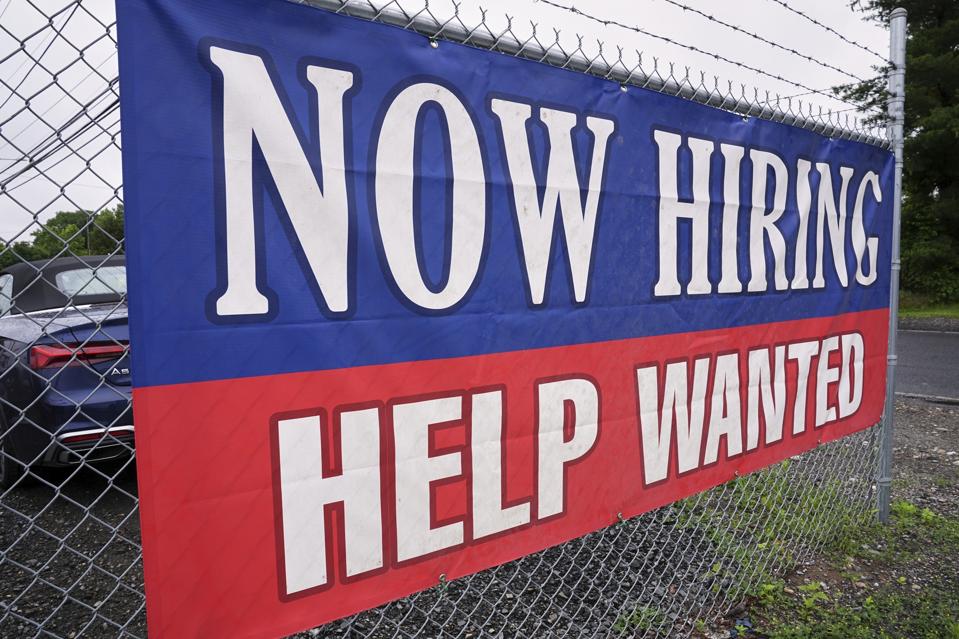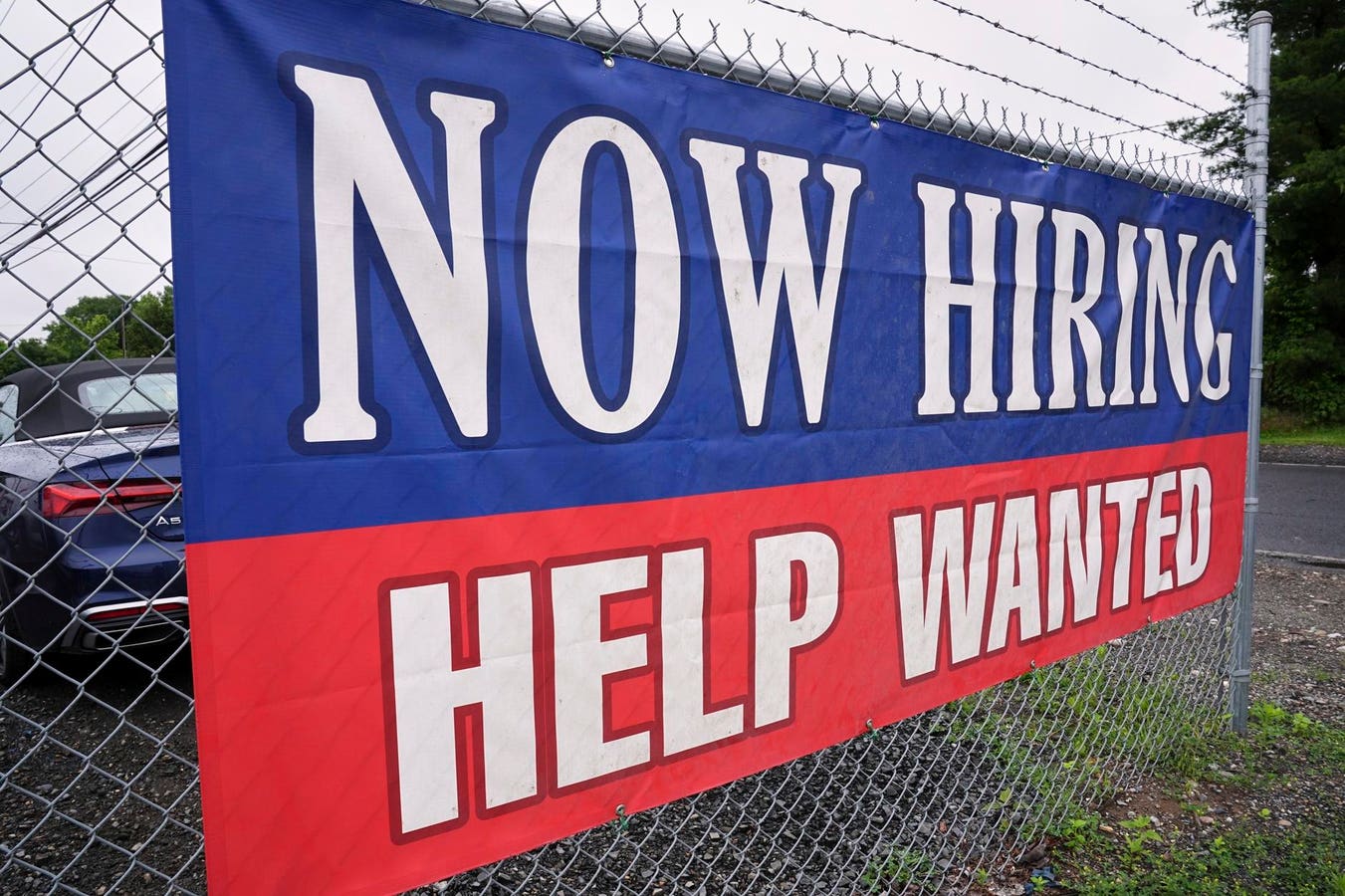
A now hiring and help wanted sign is posted in Morrisville, Pa., Monday, June 9, 2025. (AP … More Photo/Matt Rourke)
Copyright 2025 The Associated Press. All rights reserved.
Many observers, myself included, were surprised by data this past month showing that employment rates among young college graduates were worse than the rates for the population overall. It’s a rare and troubling situation for current, future, and recently graduated students, and also a troubling dynamic for colleges and universities.
The two most important questions to ask are why, and whether this is a temporary and insignificant blip, or the start of a long-end trend.
The truth is that we don’t know the answer to the first question. Speculation has included that large companies that traditionally bring on new college graduates are waiting to see how their staffing needs develop with new AI tools – tools that have been sold as ways to eliminate or reduce employees. That could be.
Although, as I speculated, it’s possible that recent college graduates, and especially those who are getting their degrees this year or last year, simply did not learn very much. Over the last five years, these graduates have had online learning forced by Covid-19, and the arrival of ChatGPT, which surveys show is being used nearly universally by students to outsource the work of learning. It’s possible, I guessed, that a college graduate today doesn’t know how to do much beyond asking AI for the answer. And, if that’s the case, that’s not a skill any business would pay to have. They can just ask AI themselves.
But both are theories. We can’t know for sure what’s driving the dip in employment among recent college grads. And in reality, it’s probably not just one thing anyway.
The bigger question is whether this is a long, deep trend or a freakish shooting star.
My money is on the table closer to shooting star than long trend.
One reason is that even the most consistent data will – even should – show an occasional deviation.
Steph Curry, perhaps the best shot-maker in the history of the NBA, has had more than ten games in his career in which he made exactly two baskets all game – each game resulting in a shooting percentage below 17%. After such a bad showing, do you bet that Curry will continue missing? Or do you bet with his history, that Curry can shoot and score at elite levels?
What we’re seeing now in these labor statistics for recent college graduates is deeply against the history of the data – the first time we’ve seen it in a decade or better and one of just two or three such occasions in about 35 years. In other words, this data point is far less common than Steph Curry having a terrible shooting night.
Over the history of the data, the answer is unambiguous. For generations, those with a college degree have earned more money, had more economic ascent and stability, and enjoyed higher rates of employment than those without a degree. Historically, and still today, a college degree is one of the best investments anyone can make, paying for itself many, many times over. And not just financially.
Another reason the safe bet is in favor of college is that those investing in a college education are not backing away. In fact, the buying line is growing, indicating that those closest to the outcome are increasingly bullish on college.
Although it did not get much attention at the time, in January, total college enrollment passed pre-pandemic levels. New enrollments were up nearly 6%.
In an update released by the National Clearinghouse this Spring, college enrollment is still growing. According to that report, “Total postsecondary enrollment is up 3.2 percent this spring (+562,000), compared to spring 2024.” Undergraduate enrollment grew 3.5%. Graduate enrollment grew 1.5%, and is now above pre-pandemic levels. For bachelor’s and associate degree programs, the growth was 2.1% and 6.3%. Since associate programs feed into bachelor programs, those are good numbers.
It’s not a good analogy to think of college students as buyers of a product. But to the extent they are, people are buying a college education. And they should.
One reason is that even if fewer recent college graduates are, right now, getting jobs, the jobs they are getting are better. College degree holders still earn more than non-degree holders both on average and at the very top-end of pay. For example, there simply are not very many people at desks in C-suite offices without a college degree, or several. The best paying and most prestigious careers still require advanced education. The pain is real right now, but the long-term realities still strongly favor college attainers.
If the history, the wage data, and the market conditions don’t convince, then consider a simple, choice of logic – if it was as easy as just saying yes or no, would you rather have a college degree or not? It’s one of those many things where it will be far better to have a degree and not need it, than to need one and not have it.
Yes, the employment rate for recent college graduates is upside down right now. But a deep breath is in order. Let’s see if the data holds for another month, or six. We will know soon enough. One data point, one bad shooting performance, is no reason to draw sweeping conclusions.
